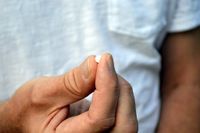A New Oral Weight-Loss Pill Shows Promise Against Ozempic
Eli Lilly's orforglipron demonstrates similar effectiveness to injectable diabetes drugs.
The pharmaceutical landscape for obesity and diabetes treatments may be on the verge of a significant transformation. Eli Lilly has recently announced the promising results of a Phase III clinical trial for orforglipron, an oral medication that could rival the popular injectable drugs Ozempic and Mounjaro. The study, which involved 559 participants with type 2 diabetes, indicates that a daily pill could effectively aid in weight loss and blood sugar control without the need for injections.
The results from the trial are compelling. Participants taking orforglipron experienced a reduction in blood sugar levels of approximately 1.3 to 1.6 percent, a reduction comparable to that seen with Ozempic and Mounjaro. Notably, 65% of those on orforglipron achieved normal blood sugar levels and lost up to 7.5 kilograms (about 16.5 pounds) during the study period. This weight loss is significant, especially when considering that patients on Ozempic typically lose around 6% of their body weight, while those on Mounjaro have reported even greater losses.
What sets orforglipron apart is its mode of administration. Unlike its injectable counterparts, orforglipron can be taken as a pill, making it a more convenient option for patients who prefer to avoid needles. Additionally, the pill can be stored at room temperature, eliminating the need for refrigeration that is often required for injectable medications.
As the pharmaceutical industry races to find effective treatments for obesity and diabetes, Eli Lilly's development of orforglipron represents a significant step forward. The drug mimics the action of the GLP-1 hormone, which plays a key role in regulating appetite and glucose metabolism. However, like other GLP-1 drugs, orforglipron may cause gastrointestinal side effects, including nausea, vomiting, and diarrhea. These side effects were reported in 13% to 18% of trial participants, compared to just 2% in the placebo group.
Despite these potential side effects, analysts are optimistic about orforglipron's prospects. Evan Seigerman, an analyst at BMO Capital Markets, noted that while there are concerns regarding the rates of nausea and vomiting, the results validate the drug's tolerable profile. Following the announcement of the trial results, Eli Lilly's stock surged by 14%, marking its largest single-day increase in over a year. Shares of Chugai Pharmaceutical Co., which partnered with Lilly in the development of orforglipron, also saw a significant rise of up to 16%.
The study, known as ACHIEVE-1, is just one of several ongoing trials examining the efficacy of orforglipron. The total number of participants in the broader study is expected to reach 3,000, with the trial continuing until July 2027. Lilly plans to present its findings at the American Diabetes Association meeting scheduled for June 2025, and it intends to submit regulatory applications to the FDA for approval by the end of 2025.
Historically, the search for effective oral treatments for diabetes and obesity has been challenging. Insulin, a critical medication for diabetics, has never been successfully formulated in pill form due to its instability in the digestive system. However, orforglipron represents a breakthrough as the first oral GLP-1 receptor agonist to complete a Phase III trial successfully. This new drug could potentially reshape the market, which is currently dominated by injectable medications.
In the past, competitors like Novo Nordisk's Ozempic and Lilly's own Mounjaro have garnered significant attention and sales, generating billions in revenue. However, the convenience of an oral medication could appeal to a broader audience, making it an attractive option for patients who are hesitant to use injections.
Moreover, the potential for orforglipron extends beyond weight loss and diabetes management. Eli Lilly is also exploring the drug's effectiveness in treating conditions associated with obesity, such as obstructive sleep apnea and hypertension. The versatility of orforglipron could provide a comprehensive approach to managing obesity-related health issues.
As the pharmaceutical industry continues to innovate, the success of orforglipron could pave the way for further advancements in oral medications for diabetes and obesity. However, the journey is not without challenges. Pfizer's recent withdrawal of its own oral weight-loss candidate, danuglipron, due to a serious liver injury in a participant underscores the inherent risks in drug development.
With the results of the ACHIEVE-1 study positioning orforglipron as a strong contender in the weight-loss market, the upcoming months will be critical for Eli Lilly. The company aims to launch the medication as early as 2026, contingent on regulatory approvals. The potential impact of orforglipron on the obesity and diabetes treatment landscape could be monumental, offering a new, more accessible option for millions of patients worldwide.
In summary, Eli Lilly's orforglipron has emerged as a promising new player in the fight against obesity and diabetes, demonstrating effectiveness comparable to existing injectable treatments while offering the convenience of an oral pill. As the company prepares for regulatory submissions and further studies, the anticipation surrounding orforglipron continues to grow, signaling a potential shift in how these conditions are treated.









